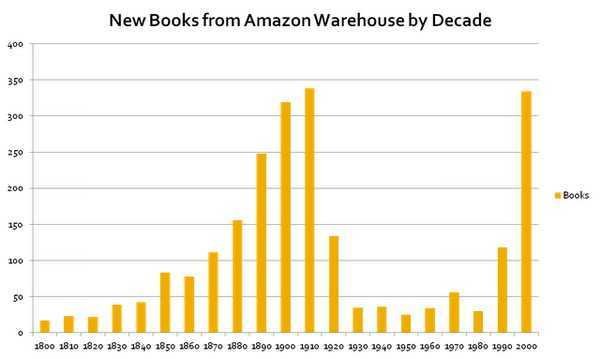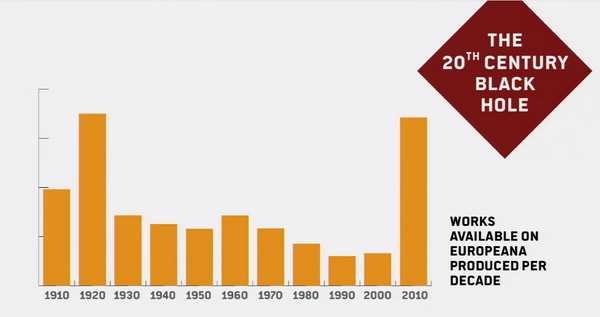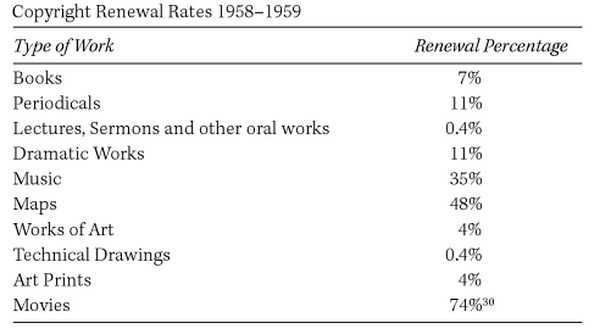How Copyright Makes Culture He disappeared: Half-life, they say, is worse than ignorance. And they are right. When you think you know a thing, that you have the knowledge on a subject while you do not have it, it's worse than ignoring it altogether.
If you think you know a subject, you close the door to learn more about it. You close the door on knowledge and the ability to see things from many different opinions and thus give yourself the opportunity to see the big picture.
As far as you are concerned and ... your self, half-life remains a problem for one. But when you are, for example, a journalist, then your half-life becomes a problem for many. You are affected by the fact that you are publishing your half-life, and this is becoming knowledgeable to many.
In terms of opinion and opinion, it is okay to have your own view, but in terms of knowledge and evidence, you have to rely on facts. If your data is wrong again it's okay enough to do research and try to fix it.
From time to time, journalists write articles in reputable newspapers and other media about copyright. Almost always, they avoid mentioning how copyright came about and how they affect (negatively or positively) our global civilization.
They are usually consumed in badgers for bad piracy and for "cunning" pirates who do not respect any sacred and sanctity and steal the trouble and the pain of the creators .... and blah blah blah ... cassette No 13.
In order to give prestige and a touch of validity to their articles, they outline various multiplications of how many thousands / millions the creators lose by the pirates of the three pirates, making their known mistakes in referring to the creators rather than the monopolies exploiting them, by using the well known method of "will", "maybe" and "dama" and round the numbers by adding a few zeros to their end.
Perhaps if they put their semi-timer for a while and devoted time to research, they would not be so "absolute" to those they are accusing everyone and everything, leaving "good" companies of exploitation of copyrights and organizations copyright management, such as our well-known AEPI.
Investigational journalism requires research, in fact, in-depth research rather than epidermal scraping of the surface.
So, to help our dear journalists, we give them some books, surveys, studies, and a very recent article:
Publishing / Books / Studies (on the Internet, with a little research, dozens of studies and surveys can be found that present data on copyright):
- Recent Discussions on the Abolition of Patents for Invetions / Recent Discussions on Patent Removal of Inventions, London, Longmans, Green, Reader, and Dyer, 1869, 350 Pages, English
- Against Intellectual Monopoly, by Michele Boldrin and David K. Levine
- COPY CULTURE in the US & Germany – (Culture of Copying in the USA and in Germany), The American Assembly, University of Columbia, Joe Karaganis & Lennart Renkema, Version 1.01, 2013
- OUR DIGITAL FUTURE: A CROWDSOURCED AGENDA FOR FREE EXPRESSION, OpenMedia
- The Case for Copyright Reform / Copyright Copyright Case, Christian Engström & Rick Falkvinge
And the article:
How Intellectual Rights (Copyright) How to Eliminate Culture (How Copyright Makes Culture Disappear)
A few years ago, we wrote for some research by Paul Heald, who did an amazing job proving positively how far today's copyright laws harm the dissemination of content.
The graphical presentation, key in this survey, was as follows:

What this graphic shows is that while new books are available for sale, they are very exhausted in their release, and are basically no longer available until we reach 1923, where these works come in Public Domain (Common Estate). Think of all these works that are no longer available to buy them during this great gap between them. Heald has since update his research to show how serious this problem is - proving how the arguments against the entry of original projects into the Public Domain have no meaning. Thus, the arguments put forward by some suggest that the Public Domain will be either "super" or "under" exploiting (yes, they are both), putting them as arguments that make no sense.
It seems copyright is doing the same damage, in Europe too. In the last congress Chaos Communications Congress in Germany, the Julia Reda, a member of the European Parliament from the Pirates Party of Germany, gave a speech on the state of the copyright law (or as it is wrongly called "intellectual property" ... as if it can ever be owned on intangible goods of culture and spiritual creation) today.
You can see the video of the speech, here:

The talk included a graphic on the books available in Europe:

What really surprises is that this gigantic set of missing works is not considered by the policy makers (apart from Reda) as the biggest problem that exists today. This loss is a huge loss for society and the public and is due to the current copyright - and could easily be avoided with some fundamental changes in legislation, including a few things such as the requirement of copyright registration, reducing the duration of intellectual (at least) the copyright owner's requirement to re-register the work periodically from time to time (renewal of the copyright ownership of a work).
As we have pointed out in the past, before the 1976 law, legislation required the registration of copyrights and the registration of their renewal (26 years). And for the overwhelming majority of works there was no renewal, because there was simply no financial incentive to do so.

However, and even though this is happening, copyright is now automatically granted for all projects and for a much longer period of time. This not only does not make sense but also leads to a huge gap for our culture, as shown by the two graphs above.
This is a huge loss for our society and culture and we should take it seriously into account in revising the EU's copyright law.
—–
From: techdirt, who are "How Copyright Makes Culture Disappear", Culture, from the to-promote-the-progress dept, by Mike Masnick, Wed, Dec 31st 2014 – 8:19am





